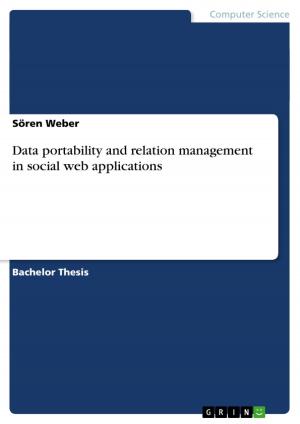Report on the International Strategy of Deutsche Bank Group
Business & Finance, Finance & Investing, Finance| Author: | Artur Gleyberman | ISBN: | 9783640544622 |
| Publisher: | GRIN Publishing | Publication: | February 22, 2010 |
| Imprint: | GRIN Publishing | Language: | English |
| Author: | Artur Gleyberman |
| ISBN: | 9783640544622 |
| Publisher: | GRIN Publishing |
| Publication: | February 22, 2010 |
| Imprint: | GRIN Publishing |
| Language: | English |
Seminar paper from the year 2009 in the subject Business economics - Investment and Finance, grade: 55%, Nottingham Trent University, language: English, abstract: This report critically evaluates Deutsche Banks' (DB) international strategy and business environment, concentrating on DB's universal bank strategy inside the European region. DB's international business environment is analysed through the application of PEST Analysis and Porters 5 Forces frameworks. Analysis of DB's international strategy includes evaluation of DB's strategic positioning and orientation, entry strategy and finally measuring strategic performance. The latter is achieved by applying the Balance Scorecard Concept together with the features of SWOT Analysis, finally resulting in several recommendations for improvement of DB's international operations. The applied business theories and concepts are critically examined in the course of their adoption. The major finding of the report is that although the highly competitive industrial environment and global financial crisis, DB's strategic management has: achieved good results in positioning DB as a leader in universal banking in Europe as well as around the world; low efficiency and low profitability relative to its main competitors; suffered high share value losses due to the financial crisis as well as its own failures in risk management, but remained stable and credible backed by its strong global franchise. Given that, DB has a strong potential to learn from the crisis, improve its former failures and come out stronger from this crisis.
Seminar paper from the year 2009 in the subject Business economics - Investment and Finance, grade: 55%, Nottingham Trent University, language: English, abstract: This report critically evaluates Deutsche Banks' (DB) international strategy and business environment, concentrating on DB's universal bank strategy inside the European region. DB's international business environment is analysed through the application of PEST Analysis and Porters 5 Forces frameworks. Analysis of DB's international strategy includes evaluation of DB's strategic positioning and orientation, entry strategy and finally measuring strategic performance. The latter is achieved by applying the Balance Scorecard Concept together with the features of SWOT Analysis, finally resulting in several recommendations for improvement of DB's international operations. The applied business theories and concepts are critically examined in the course of their adoption. The major finding of the report is that although the highly competitive industrial environment and global financial crisis, DB's strategic management has: achieved good results in positioning DB as a leader in universal banking in Europe as well as around the world; low efficiency and low profitability relative to its main competitors; suffered high share value losses due to the financial crisis as well as its own failures in risk management, but remained stable and credible backed by its strong global franchise. Given that, DB has a strong potential to learn from the crisis, improve its former failures and come out stronger from this crisis.















